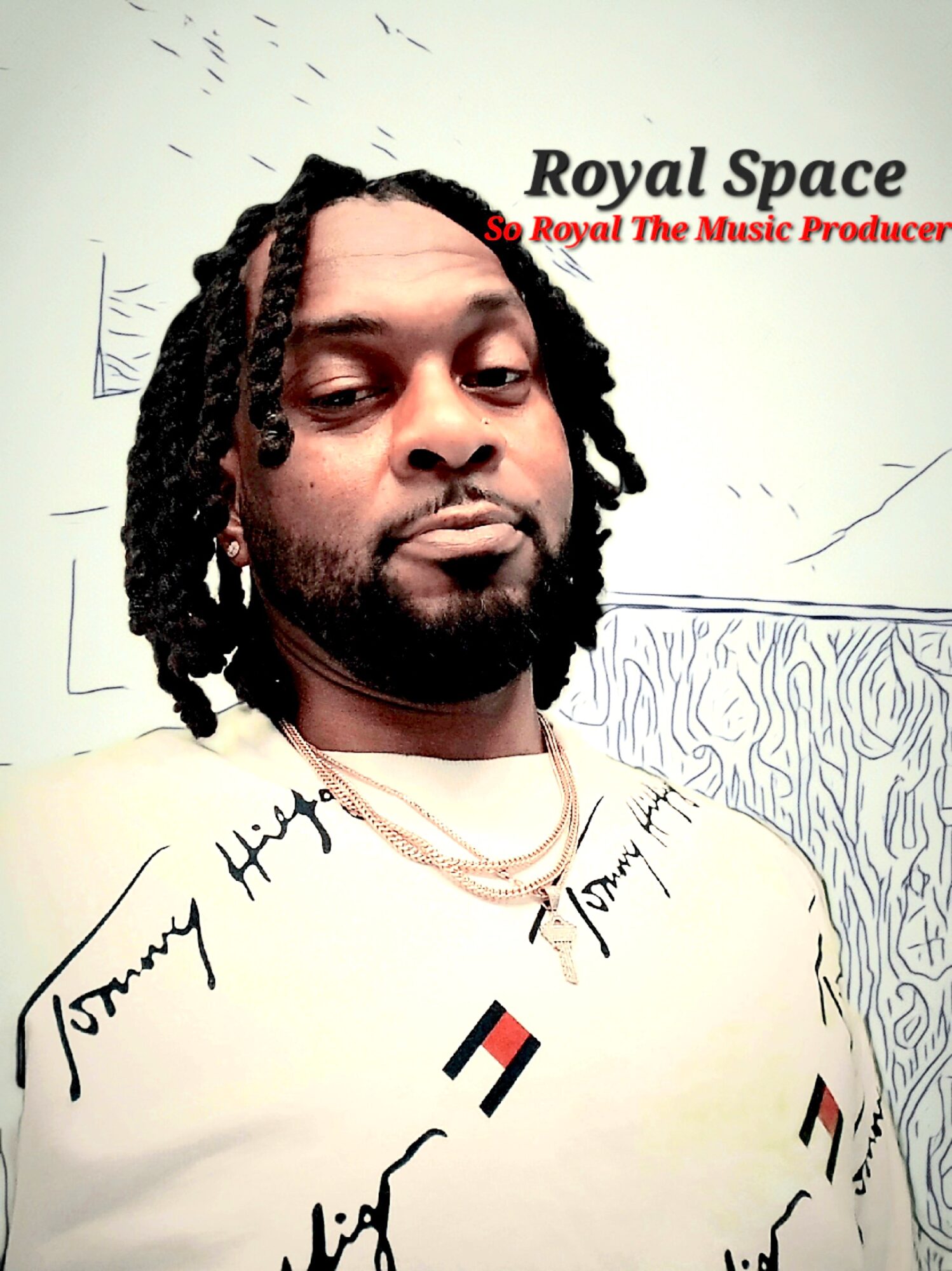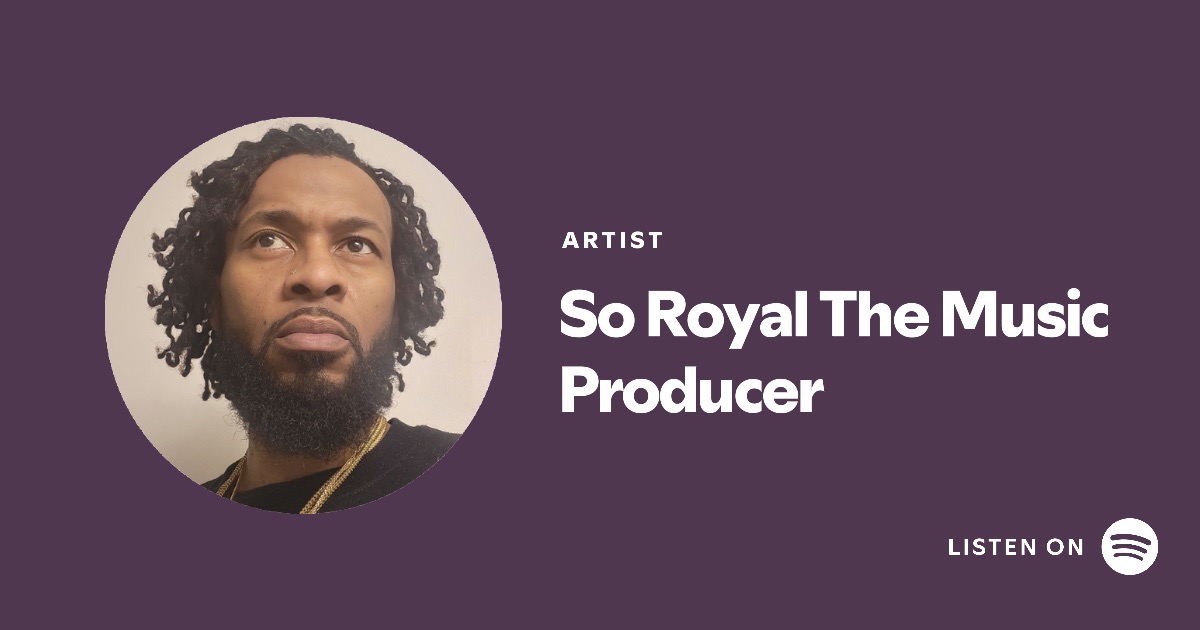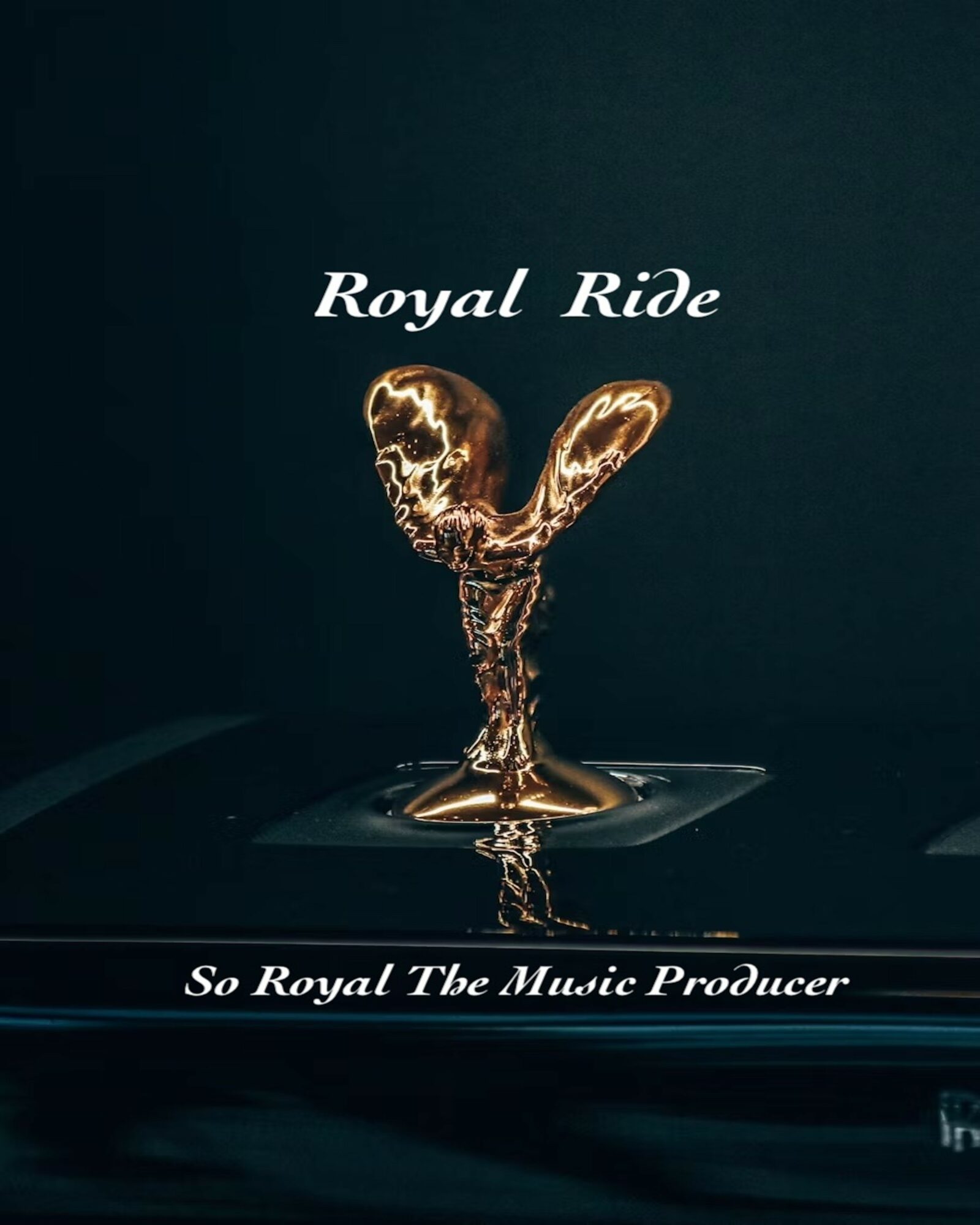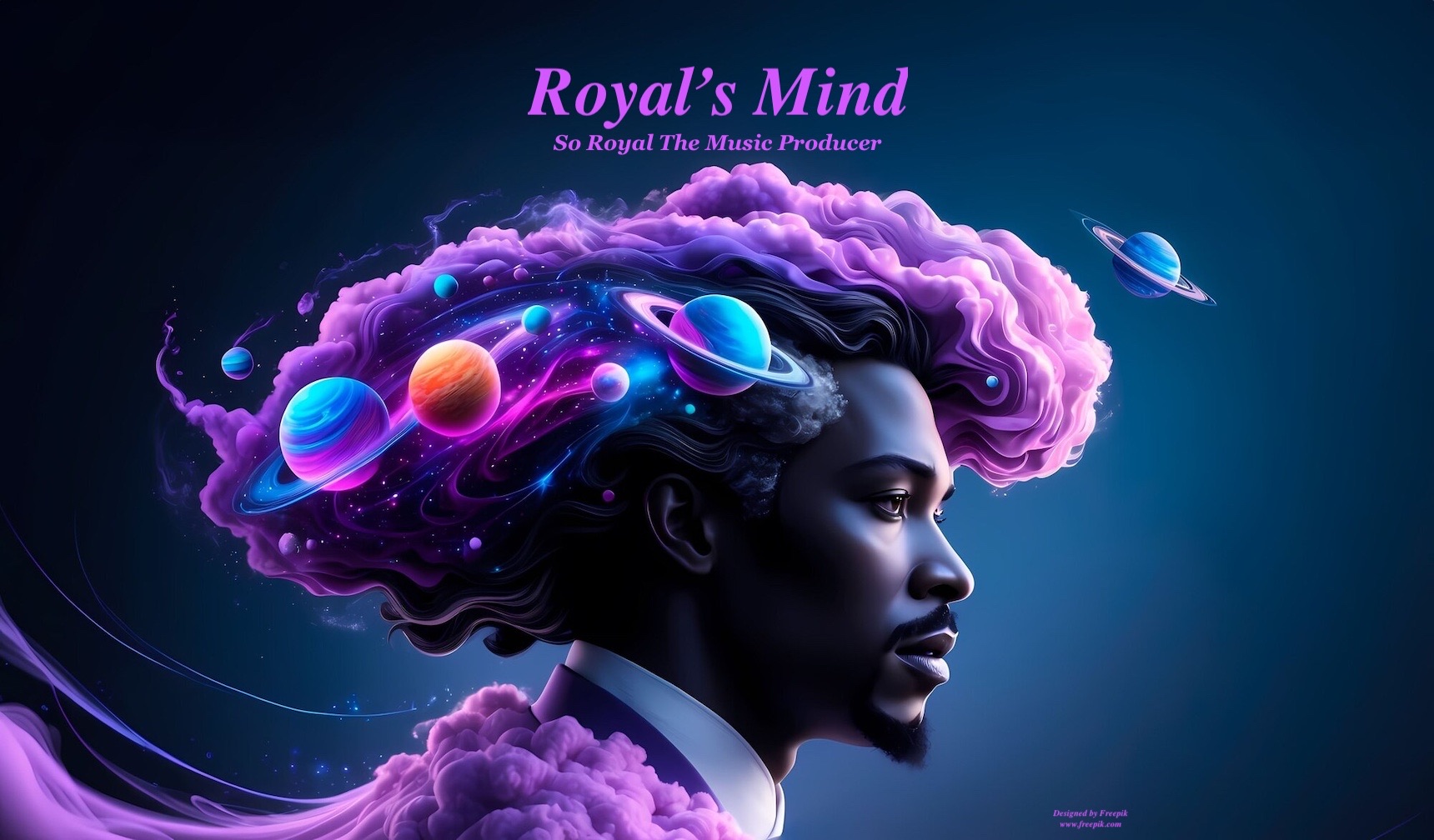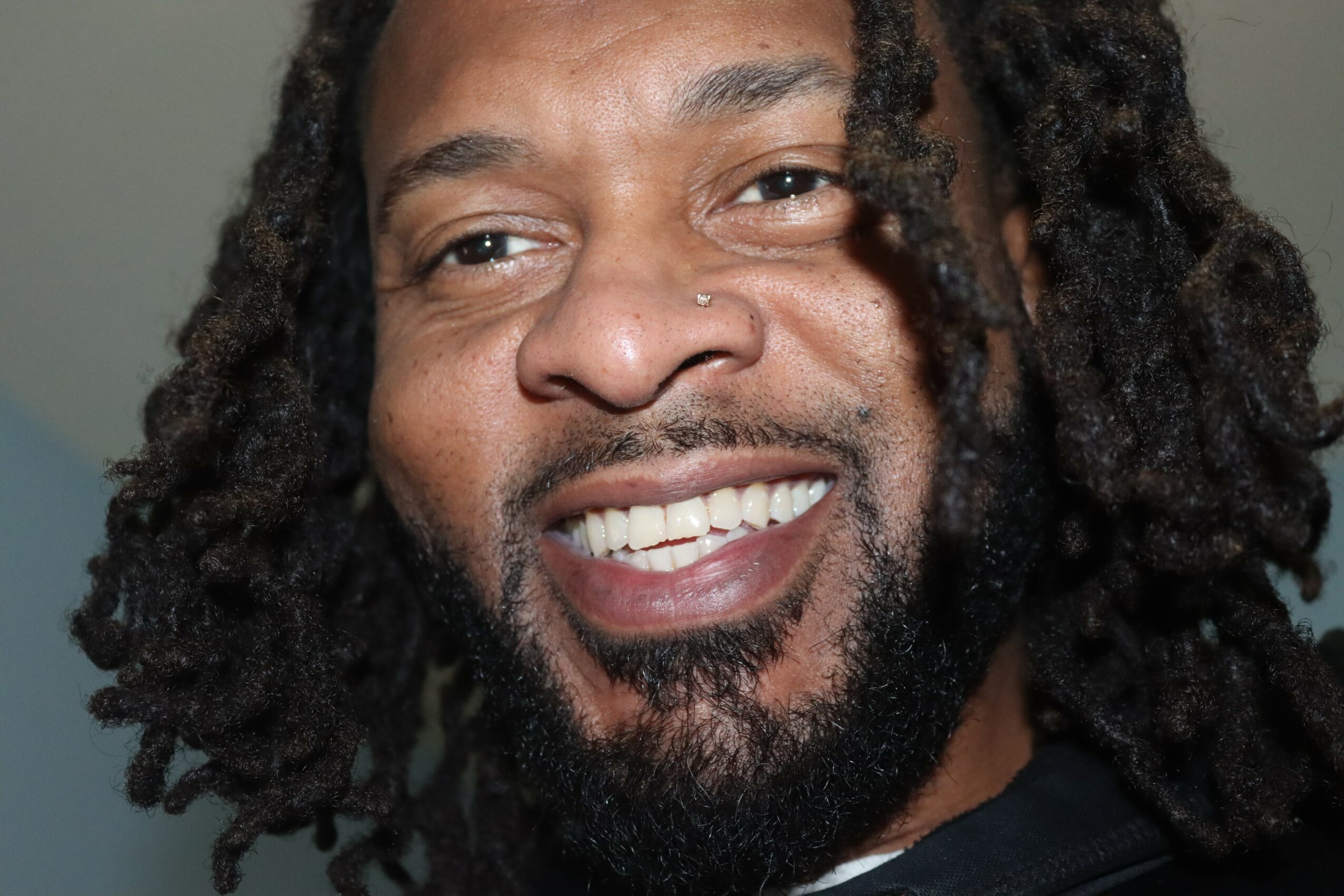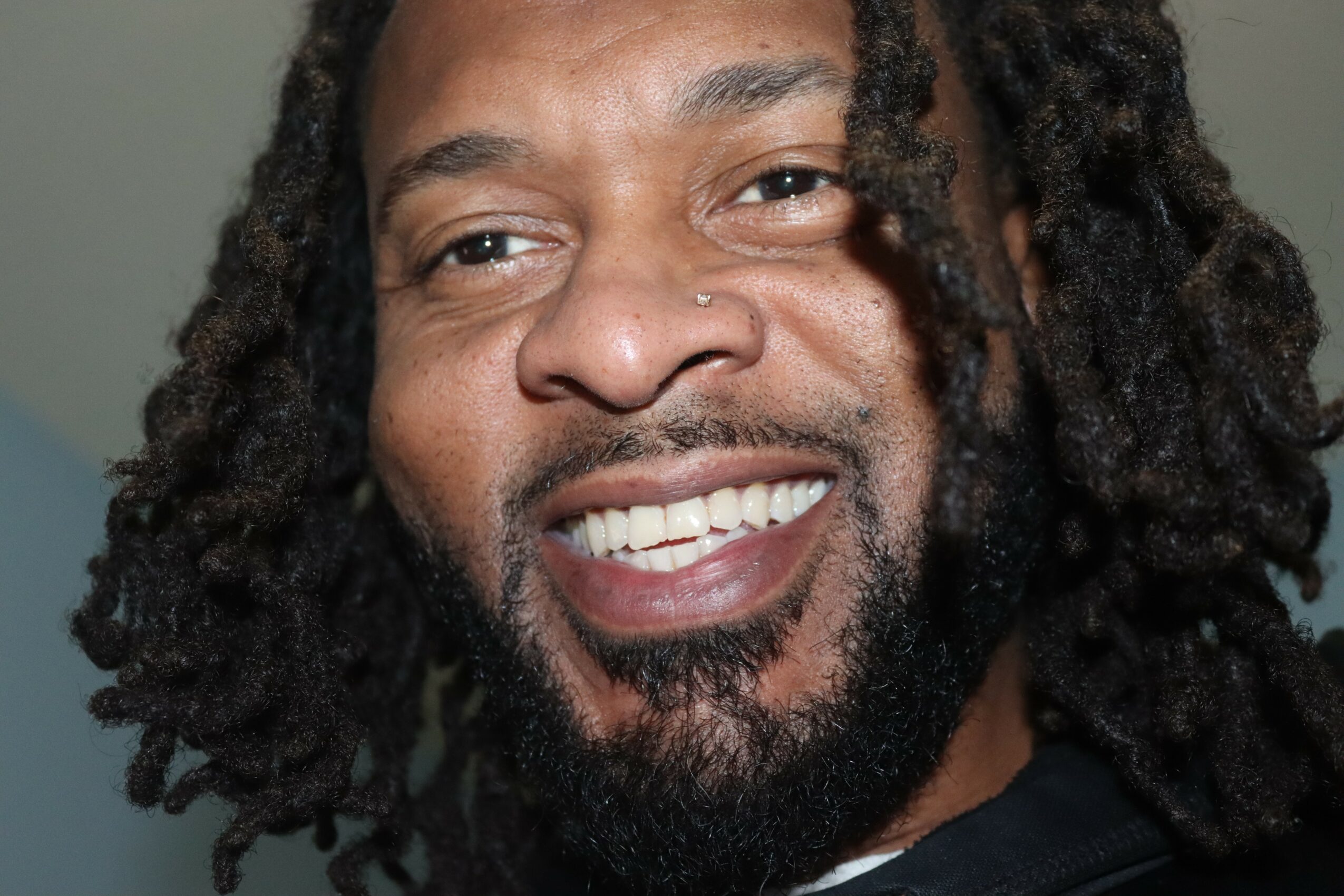

Today we’d like to introduce you to So Royal The Music Producer / Joshua Mott
Hi So Royal , we’re thrilled to have a chance to learn your story today. So, before we get into specifics, maybe you can briefly walk us through how you got to where you are today?
I’m So Royal, a talented music producer known for my eclectic sound and innovative production style. I blend various genres, including hip-hop, R&B, and electronic music, creating unique tracks that resonate with diverse audiences. With a passion for collaboration, I’ve worked with a range of artists, helping to elevate their sound and craft compelling musical experiences. My dedication to artistry and quality continues to earn me recognition in the music industry.
As a versatile producer and songwriter, I celebrate the fusion of genres in my work. I began my musical journey at a young age, honing my skills in beat-making and sound design. My innovative production style combines rich melodies with intricate rhythms, making my tracks stand out. Over the years, I’ve collaborated with a diverse array of artists, contributing to their sonic landscapes and helping to shape their musical identities. In addition to my production work, I’m committed to nurturing emerging talent, often sharing my expertise through workshops and mentorship. My passion for music and dedication to the craft drive my evolution as an artist, positioning me as a rising star in the industry. With each new project, I aim to push boundaries and create sounds that inspire and connect with listeners worldwide.
We all face challenges, but looking back would you describe it as a relatively smooth road?
When I first started learning the organ as a child, the challenge wasn’t just about figuring out the keys. It was about building a foundation of music theory — understanding how scales, chords, and progressions fit together. As a kid, I didn’t always have the patience to stick with it, but I learned that the more I practiced, the clearer the connection became between my fingers and the sound.
The real frustration came from not always being able to express what I felt musically. I had the passion, but translating that into the right notes and feeling comfortable with technicality was a tough process. There were times when it felt like the music was just out of reach.
Joining the band took things to a whole new level. I had to shift from just playing by ear to actually reading sheet music and understanding how to collaborate with others. That meant learning to follow someone else’s lead, even when the tempo or key changes were unexpected. Not to mention the pressure of staying in sync with the band, which sometimes made me feel like I wasn’t playing “freely” enough.
Trying to figure out my own role within the band dynamics—what part to play, when to stay back, when to take the lead—was tricky. I didn’t always feel confident in my timing, and sometimes I’d get caught up in comparing myself to the more seasoned players around me. But eventually, I realized that music, like anything else, is about building trust and chemistry with those you’re playing with.As I started moving towards music production, the transition was a whole different ballgame. It’s one thing to be a musician, but to produce meant learning how to use DAWs, mixers, and sound libraries in ways that I wasn’t initially comfortable with. The technical side of things—EQ, compression, and effects—was overwhelming at first. The learning curve felt steep, and it was tough not to get frustrated when I couldn’t get my ideas to translate the way I envisioned them. I had to realize that being a producer isn’t just about creating sound; it’s about shaping the sound.
But the real struggle wasn’t just with the gear—it was with understanding how to craft something that would resonate with an audience. I’d often find myself wondering, “Is this sound too experimental? Too niche? Or is it just the right vibe?” It became clear that I had to not only learn the tools of production but also understand the art of listening to myself, trusting my instincts, and knowing when to break from the rules.
The deeper I got into the production game, the more I realized how much I didn’t know. That’s when I started seeking out advice from industry professionals—producers, engineers, artists. It’s easy to get stuck in your own bubble, thinking your way is the only way. But hearing how others approach the creative process, the business side of things, and how they handle setbacks was eye-opening.
Still, a lot of the advice felt conflicting at times. One person would say, “Focus on the vibe and worry less about perfection,” while another would stress, “You need every track to be pristine if you want it to sound polished.” Trying to balance that was a challenge, but it pushed me to trust my own process and not try to follow someone else’s blueprint for success. Setting up a home studio was another hurdle—equipment overload is real. There’s a million different gear options out there, and it’s easy to get paralyzed by choices. I wanted my setup to be professional enough to create industry-standard music but not so expensive that I couldn’t afford to experiment.Finally, understanding my audience and staying consistent with releasing music has been an ongoing challenge. The industry is always shifting—new trends pop up, the sound of the moment changes, and what worked yesterday might not be relevant today.
There’s a fine line between staying true to your sound and adapting to what people are looking for. And with the internet, it’s easy to get caught up in comparing yourself to everyone else. Sometimes I find myself wondering if the records I’m putting out are hitting the mark, or if I’m just adding to the noise. Staying consistent with releases is tough when you’re also trying to stay authentic to your artistry, but I’ve learned that it’s about finding that balance—releasing music that I believe in while also staying connected to the evolving musical landscape.
Can you tell our readers more about what you do and what you think sets you apart from others?
I’m a Rapper/Singer, but what really sets me apart is my approach to music production. I specialize in blending genres, fusing my skills as a producer with my musical background to create something that feels authentic to me. I don’t just make beats—I build entire sonic landscapes that reflect both my artistic vision and my journey. Whether I’m crafting a hard-hitting rap track or a soulful, melodic hook, my music always carries a personal touch, rooted in my experience as a true musician. I’m known for playing the piano, which is one of the things that truly sets me apart in the music scene.
While a lot of artists focus on the vocal or the rhythm, my musicality shines through my ability to use the piano as both a compositional tool and an emotional vehicle. Whether I’m adding intricate chords to a song or creating a melody that carries the entire vibe, the piano is the foundation of everything I create. My music feels organic because it’s rooted in a real understanding of sound—not just what sounds good, but what moves people. What I’m most proud of is taking the leap to put out my own records. For a long time, I thought of myself simply as a beat maker, confined to just making instrumentals for others. But I eventually realized that I had a voice and a message that needed to be heard. Stepping out of the shadows of being just a producer and becoming an artist in my own right was a huge risk, but it was the right one.
The moment I dropped my first full record and saw how people responded to it, I knew I had made the right choice. It was about claiming my space in the music world—not just as someone behind the scenes, but as an artist with something to say. What really sets me apart is the combination of being both a real musician and a versatile producer. The fact that I play the piano and have a deep understanding of music theory gives me an edge that a lot of other artists might not have. I don’t just rely on loops or pre-made sounds—I create everything from scratch, infusing it with the nuances that come from being an actual musician. It’s about more than just the beats; it’s about crafting soundscapes that feel rich and layered, where every note has purpose.
Plus, my journey is unique. I started off wanting to just make beats for others, but over time, I grew into a multi-faceted artist who raps, sings, and produces. That evolution has made me someone who’s not afraid to experiment or blend genres, because I’ve built a deep connection to music from every angle.
We’d love to hear about any fond memories you have from when you were growing up?
. I was around 10 or 11 years old, and it felt like the moment I finally had a key to unlock a new world. I remember the excitement that rushed through me as I unboxed it, plugging it in, and just pressing the keys for the first time—each sound feeling like a new discovery. But the real magic came when I’d grab that keyboard and head over to my neighbor’s house with my dad.
My dad played bass, and he had this natural groove—everything he played just felt like it belonged in the music. I didn’t even realize it back then, but watching him play, I was learning how to feel the rhythm of a song, how to own the pocket, and how important it was to lock in with everyone else around you. That bass playing of his, smooth but full of energy, laid the foundation for everything else that happened in those jam sessions.
My neighbor’s house was like a musical hub. They were a guitar group—really tight, really passionate about the craft. The neighbor himself was an experienced guitarist, always improvising and bringing a little edge to the jams. His son played the organ, and that added this soulful vibe to the mix, these rich, lush sounds that anchored everything we did. I remember the way the sound of the organ would fill the room, and how it felt like you were enveloped in the music. It wasn’t just background noise; it was the heartbeat of everything.
We’d all gather there, jamming for hours—no agenda, no plans, just free-flowing music. The beauty of it was that it wasn’t about being perfect or polished. We were just playing for the love of it, and it was in those moments that I learned how to let go and trust the music. Everyone was in sync, feeling each other out, trading ideas, and creating something new every time. My keyboard wasn’t just a set of keys; it was my way of communicating, contributing to this spontaneous, magical thing happening around me.
What made it even more special was how it connected me to my dad in a way that was different from anything else. He wasn’t just my dad in those moments—he was my musical partner, helping me find my place in this jam session. His bass playing taught me timing and groove, and as I experimented with melodies and chords on my keyboard, he’d respond to my sounds, encouraging me to stretch out more, take risks, and keep the rhythm flowing.
I also learned how to listen in those jams—really listen to the sounds around me and figure out how I could make my own voice heard without overpowering anyone else. It was like being part of a conversation, where each instrument had its own role, its own voice, but together, we were telling a bigger story.
Those hours of jamming were not only a chance to bond with my dad and my neighbors, but also the beginning of my deep love for collaboration. It set the stage for how I approach music today. It’s not just about making beats or writing lyrics—it’s about the vibe, the energy between everyone involved, and the way all the different pieces come together to create something special. Those jam sessions taught me how to build music from the ground up, layer by layer, but more importantly, they taught me to feel the music, to let it move through me, and to never be afraid to explore.
Pricing:
- 1000’s
Contact Info:
- Website: https://soroyalgarments.myshopify.com
- Instagram: https://www.instagram.com/soroyal_themusicproducer/
- Facebook: https://www.facebook.com/soroyalthemusicproducer/
- Youtube: https://www.youtube.com/@soroyalthemusicproducer
- Other: https://open.spotify.com/artist/4yIXZFCCjwLyVvas1XKiqR
